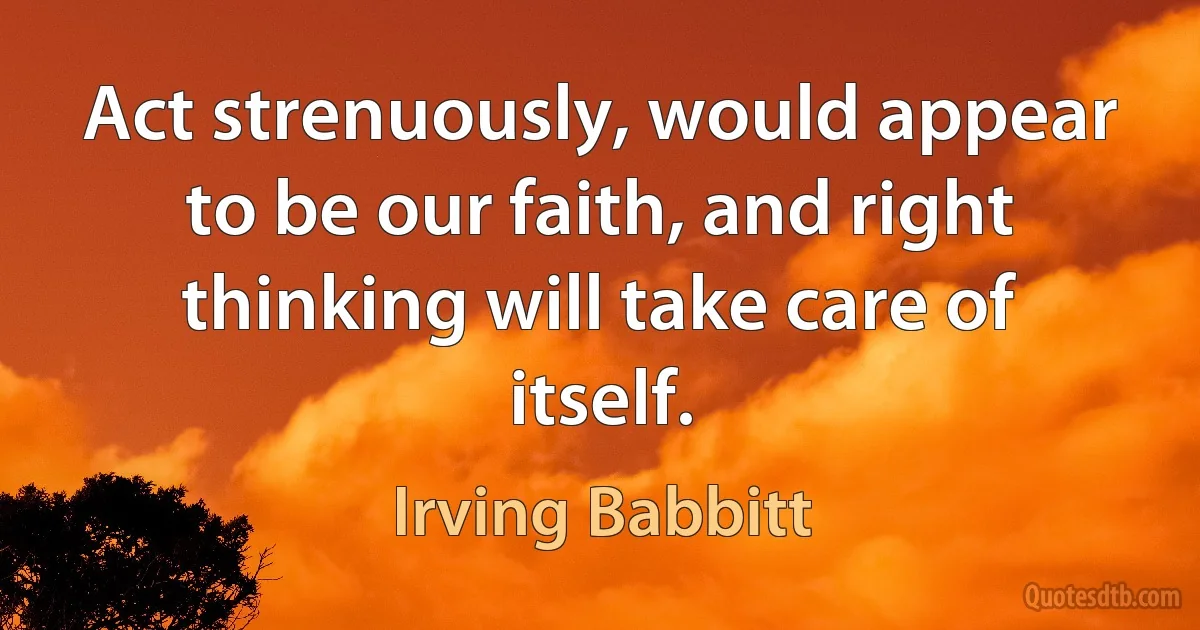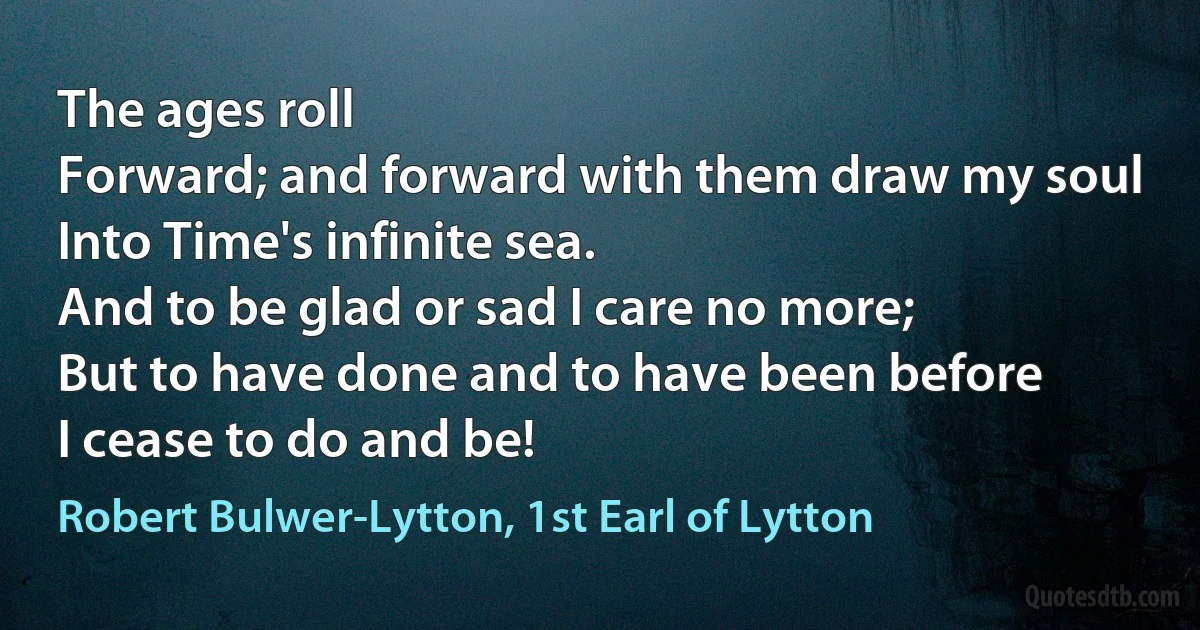Care Quotes - page 87
In Paris a queer little man you may see,
A little man all in gray;
Rosy and round as an apple is he,
Content with the present whate'er it may be,
While from care and from cash he is equally free,
And merry both night and day!
"Ma foi! I laugh at the world." says he,
"I laugh at the world, and the world laughs at me!"

Pierre-Jean de Béranger
[Issam al-]Sartawi and I are sitting in a small restaurant on the Boulevard St. Germain. After the main course, he excuses himself. 'I have to go to the bathroom. Keep an eye on my briefcase.' His attaché case - the kind Israelis call James Bond cases - stands under the table. After a few minutes he comes back, takes his seat and bursts out laughing. 'If I told anyone of my friends that I left a briefcase full of PLO secrets in the care of a Zionist, they wouldn't believe me', he says. 'If I tell anyone of my friends that a PLO terrorist put an attaché case under my table and went away, and I remained there, they'd think that I was crazy', I reply. We laugh and order a dessert.

Uri Avnery
In Italy there is a fringe of imbeciles who believe they can resurrect communism. To bury the corpse of Marxism is not easy, because for many people that would mean denying the whole of existence. Of course Bertinotti is not one of those: he knows nothing about Marxism, he doesn't care, he is a little clown, an Italian-style populist who stirs masses of poor devils in the streets and still speaks of the working masses that only he sees.

Indro Montanelli
While we labour to subdue our passions, we should take care not to extinguish them. Subduing our passions, is disengaging ourselves from the world; to which however, Whilst we reside in it, we must always bear relation; and we may detach ourselves to such a degree as to pass an useless and insipid life, which we were not meant to do. Our existence here is at least one part of a system.

William Shenstone
In every sound convert the judgment is brought to approve of the laws and ways of Christ, and subscribe to them as most righteous and reasonable; the desire of the heart is to know the whole mind of Christ; the free and resolved choice of the heart is determined for the ways of Christ, before all the pleasures of sin, and prosperities of the world; it is the daily care of his life to walk with God.

Joseph Alleine
Being a beggar, he said, was not his fault, and he refused either to have any compunction about it or to let it trouble him. He was the enemy of society, and quite ready to take to crime if he saw a good opportunity. He refused on principle to be thrifty. In the summer he saved nothing, spending his surplus earnings on drink, as he did not care about women. If he was penniless when winter came on, then society must look after him. He was ready to extract every penny he could from charity, provided that he was not expected to say thank you for it. He avoided religious charities, however, for he said it stuck in his throat to sing hymns for buns. He had various other points of honour; for instance, it was his boast that never in his life, even when starving, had he picked up a cigarette end. He considered himself in a class above the ordinary run of beggars, who, he said, were an abject lot, without even the decency to be ungrateful.

George Orwell
There has been a great deal of talk about raising class prejudice. I dislike class prejudice. ... There has been no feeling of class prejudice in my mind; but, my Lords, there is a worse thing than class prejudice, and that is race or national prejudice. We have not had much of it, in fact I may say almost none of it, here. Still is it not true that the cry which is going to be loudly invoked in this election, the Irish cry, depends upon race and national prejudice? Talk of class prejudice. The classes will take care of themselves, I trust. The English working man in my view-and I represented a great and important group of them for many years-is not in the least a Phrygian with a red cap, though some of his fellows may talk in that vein.

John Morley, 1st Viscount Morley of Blackburn
In anguish, I asked the prime minister what our intelligence agencies were doing all these months when the arms build-up was going on. And why action had not been taken to apprehend Sant Jarnail Singh Bhindranwale, the extremist leader. I asked her if any police officer had been taken to task for negligence of duty in allowing terrorists to smuggle arms into the temple [Golden temple, Amritsar] for almost two years. She had obviously no plausible answer. With a distant look in her eyes, she replied feebly that it was the duty of the Punjab government to take care of these aspects.

Zail Singh
Almost 50 million of the country's 70 million population are young people under 30 years. They have access to information about what is going on in the world. They understand just how bad are the things now occurring in Iran. I think soon my countrymen will realize that the present regime does not care about ordinary people but cares exclusively for itself. Besides, we have opposition cells throughout the world, since many Iranians left their homeland after the revolution. With them, as well as with the opposition inside the country, we are in close contact.

Reza Pahlavi
I want the ability to do whatever I want without a whole fleet of lawyers and record companies analyzing it and telling me what to do. It's like the success of doing it that way doesn't mean enough to me as an artist or a person for me to fight about it. I'm not going to fight anymore I'm just going to do it the way I want to do it. Why am I going to do it that way and be so obstinate? Because I don't care enough about it to spend that much time on it.

Devin Townsend



